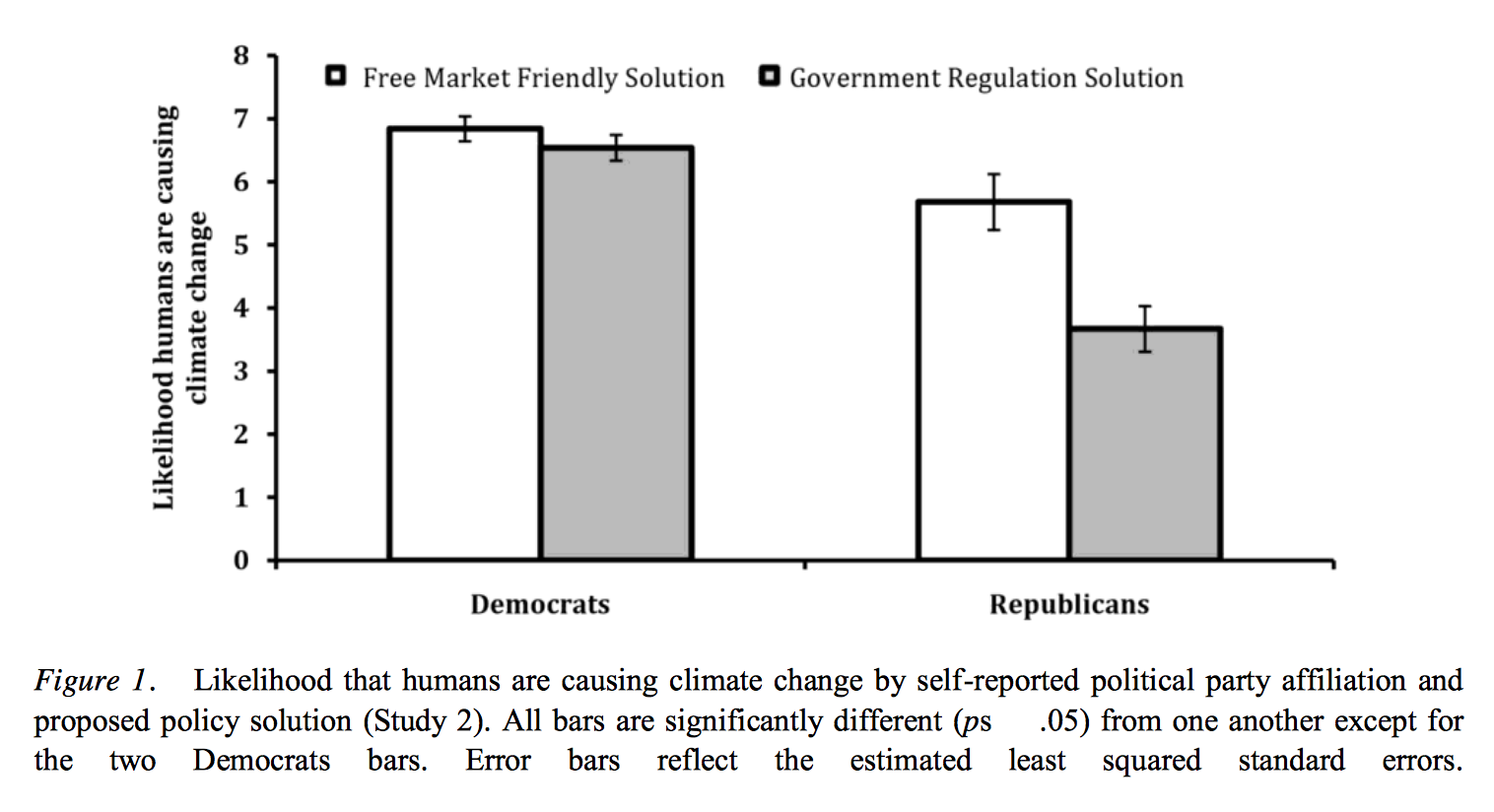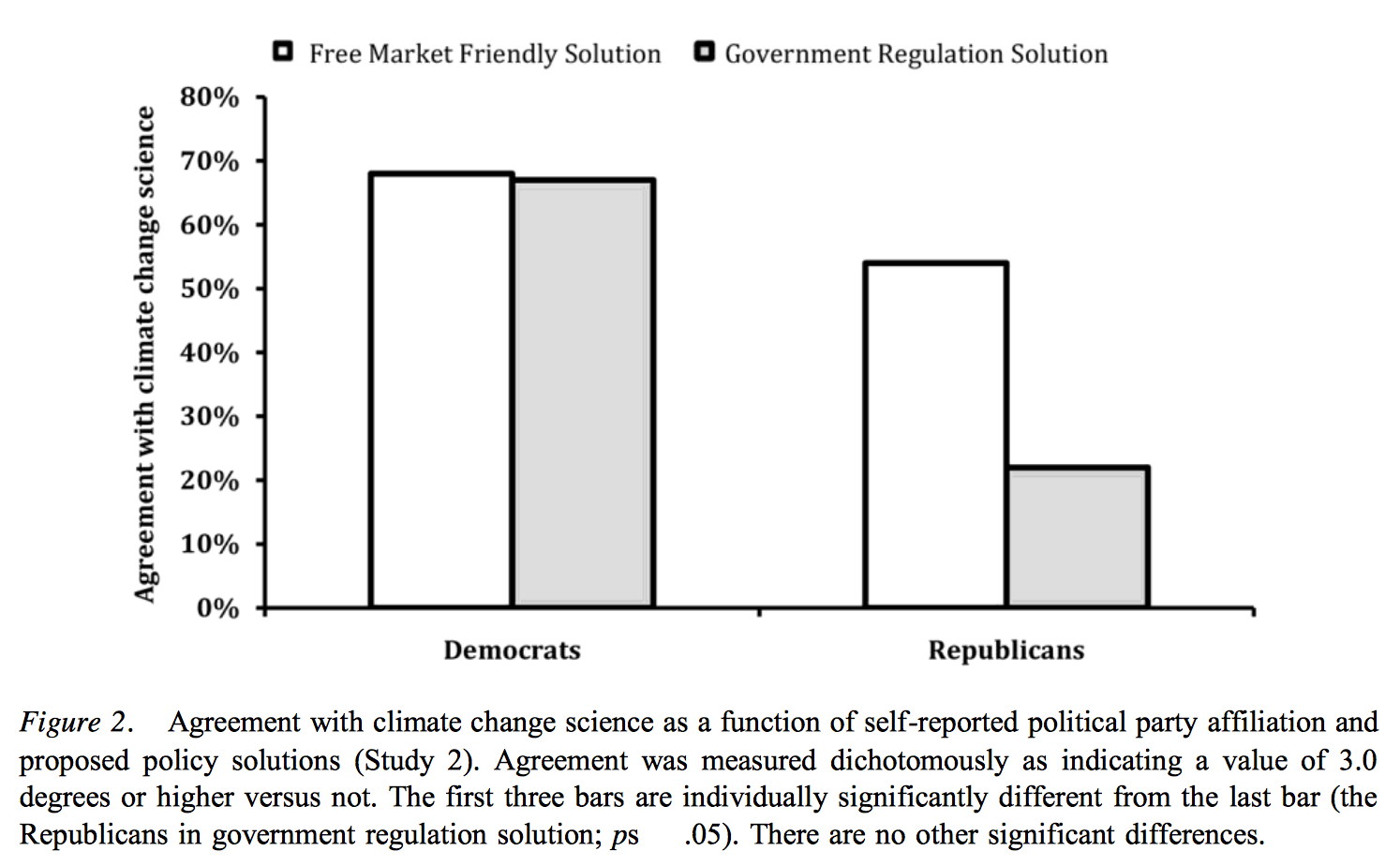This week in the Washington Post, my friend Jonathan Adler, a law professor at Case Western University who specializes in environmental law, asked what it might take to convince conservatives and libertarians that climate change is a problem. He asks the question because, as Reason’s science correspondent Ronald Bailey recently noted, it would seem that the scientific case for concern about climate change is rather convincing. Bailey and Adler–like me–were once skeptics regarding government action to address climate change. And now, they–like me–are convinced that the problem is real and significant enough to demand a policy response. What more, Adler asks, will it take to bring others along?
There’s no simple answer to Adler’s question—and Adler doesn’t offer one—but the social science literature suggests that the root of the problem—for many—is an unwillingness to believe something that they’d rather not believe.
Consider a study by Troy Campbell and Aaron Kay published last fall in the Journal of Personality and Social Psychology (alas, behind a pay wall but a version of the paper can be found for free here). Participants were read this statement:
The Intergovernmental Panel on Climate Change (IPCC) reported that there would be an increase of 3.2 degrees Fahrenheit in worldwide temperatures in the 21st century and that humans are responsible for global climate change patterns.
After a few qualifying questions, participants were randomly assigned to two groups. One was given quotes from a speech the authors crafted about climate change in which the speaker cited the aforementioned IPCC statement and then described how the United States could help stop climate change and profit by doing so by leading the world in green technology. The other was given a similar speech but with the speaker describing how the United States could help stop climate change and lead the world in restrictive emissions policies.
And what do you know? Republicans who heard the speech about technological innovation as a solution to climate change were far more likely to accept that humans were causing climate change than were those who heard the speech about emission controls.
The same pattern was found when respondents were asked about their agreement with the aforementioned IPCC warming projection.
In another test, the authors checked to see if relative embrace of free market ideology explains skepticism about environmental risks in a somewhat broader policy arena: air pollution in general. Answer … yes.
The authors conclude:
These data suggest that skepticism toward issues such as climate change and environmental science may be caused in part by the unique implications climate change solutions hold for certain individuals’ ideological values, rather than just simply a blanket tendency for certain individuals or groups to dislike science or deny catastrophe and problems.
There are other explanations, of course, that have empirical strength. Dan Kahan’s work at Yale suggests that the need to affirm one’s membership in important identity groups explains the reluctance of conservatives and libertarians to shift positions on climate change. John Jost and Mahzarin Banaji argue that people tend to justify the validity of their current social system, often through motivated and fact-defying intellectual gymnastics. Brittany Liu and Peter Ditto find that people usually find ways to shape their factual beliefs so that these are largely consistent with their moral beliefs, thus minimizing any psychological dilemma. And of course, John Zaller argues that opinions change when respected elites tell people that it’s time for opinions to change.
These explanations are all related to the underlying problem, which is a universal one not uniquely shared by conservatives or libertarians or isolated in the climate policy arena. To wit, there are steep psychological barriers that prevent us from acknowledging inconvenient truths.
I don’t mean to say that everyone in the “just say no” camp regarding climate policy is a captive to some form of motivated cognition. I do mean to say, however, that one would have to be blind not to acknowledge that many are.


